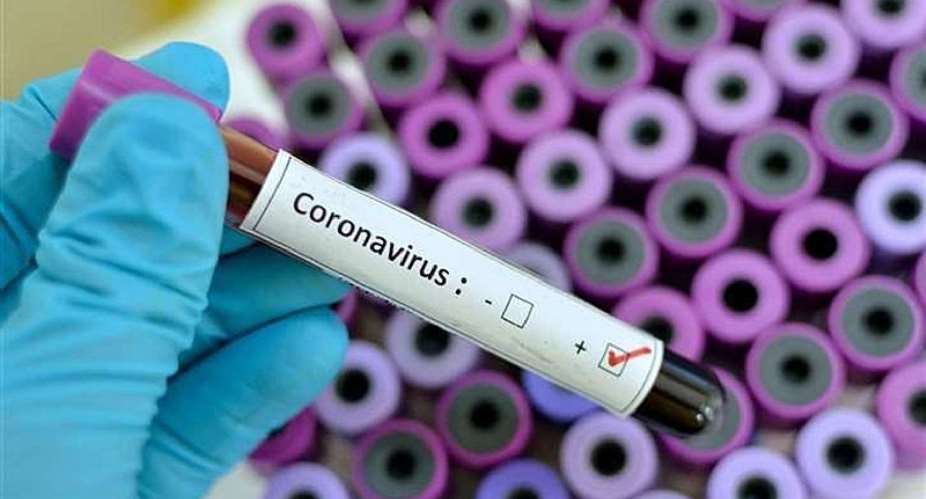The spike in new confirmed COVID-19 cases in Ghana announced by the Minister of Health in yesterday’s press conference has resulted in calls among some segments in the country including the TUC urging the government to declare a total lockdown as part of measures to contain the pandemic.
While vaccines to cure the disease are currently not available, it is clearly understood that isolating some parts or even all of the population physically would be an effective way to battle the coronavirus and stop its spread in our country. In a real world situation, what any government facing this pandemic would do would be to provide adequate protective equipment for frontline workers, provide enough test kits, close its borders, quarantine all persons entering the country especially those suspected to be high-risk, conduct contact tracing as well as isolate and care for confirmed persons. In addition, the government would also have to encourage people to observe basic personal hygiene, practise social distancing as well as prohibiting social gatherings. Without any doubt, the government of Ghana has implemented all these measures which in my opinion appears to be successful to a very large extent.
Notwithstanding, there is still pressure on government from some segments of the public to shut down some parts and if possible the whole country. In my candid opinion, the discussions should not centre on whether we should lockdown or not but rather how the lockdown should be implemented in our Ghanaian setting and whether the country can bear the economic consequences of the lockdown.
What should constitute lockdown in our context? How long should it last? How does the government communicate it to the people? We live in a country where communication is a major problem. How does government support those affected by this action? These and many other questions are what I think should epitomise our discussions at this time.
Economic consequences of lockdown
It is important to acknowledge that the implementation of a lockdown certainly requires a broad range of measures aimed at supporting not only the people but also businesses. As a result, it will have a very huge impact on the economy. A key issue would be how long the shutdown would last. Obviously, a prolonged lockdown would definitely lead to a collapse of businesses resulting in production and income losses and massive layoffs which could aggravate the already existing economic hardships in the country.
As people are required to stay home when shutdown is implemented, government would be obliged to provide income support particularly to the self-employed and given the large informal sector in our economy, one can imagine how much government would have to spend. Should the shutdown stretch over a longer period, government has to ensure that there is adequate supply of food and other essential goods on the market. Furthermore, the relatively low productivity and continuous depletion of stock would lead to price instability, hence inflation in the economy.
In much the same way, government will have to provide both monetary and fiscal stimulus packages in a form of reduction in policy rates, tax wavers, subsidies, among others to the affected sectors in the economy. All these measures increase government expenditure and widen its deficit gap. This situation will exacerbate the public debt of the country.
In conclusion, whereas I sincerely admit that an imposition of a lockdown has the tendency to break the chain of transmission of the coronavirus, it is also important to consider the fragility of our economy and whether as a country we can bear the economic burden. My proposal to the government at this point would be a strict enforcement of the closure of nonessential places and shops in Accra, Tema and Kumasi which appear to be the hotspots of the pandemic.
Kwame Asiedu, PhD
Economist & Lecturer
Kumasi.





 Minority will expose the beneficial owners of SML, recover funds paid to company...
Minority will expose the beneficial owners of SML, recover funds paid to company...
 Prof. Opoku-Agyemang has ‘decapitated’ the NPP’s strategies; don’t take them ser...
Prof. Opoku-Agyemang has ‘decapitated’ the NPP’s strategies; don’t take them ser...
 Abubakar Tahiru: Ghanaian environmental activist sets world record by hugging 1,...
Abubakar Tahiru: Ghanaian environmental activist sets world record by hugging 1,...
 Prof. Naana Opoku-Agyemang will serve you with dignity, courage, and integrity a...
Prof. Naana Opoku-Agyemang will serve you with dignity, courage, and integrity a...
 Rectify salary anomalies to reduce tension and possible strike action in public ...
Rectify salary anomalies to reduce tension and possible strike action in public ...
 Stop all projects and fix ‘dumsor’ — Professor Charles Marfo to Akufo-Addo
Stop all projects and fix ‘dumsor’ — Professor Charles Marfo to Akufo-Addo
 Blue and white painted schools will attract dirt shortly – Kofi Asare
Blue and white painted schools will attract dirt shortly – Kofi Asare
 I endorse cost-sharing for free SHS, we should prioritise to know who can pay - ...
I endorse cost-sharing for free SHS, we should prioritise to know who can pay - ...
 See the four arsonists who petrol-bombed Labone-based CMG
See the four arsonists who petrol-bombed Labone-based CMG
 Mahama coming back because Akufo-Addo has failed, he hasn't performed more than ...
Mahama coming back because Akufo-Addo has failed, he hasn't performed more than ...
